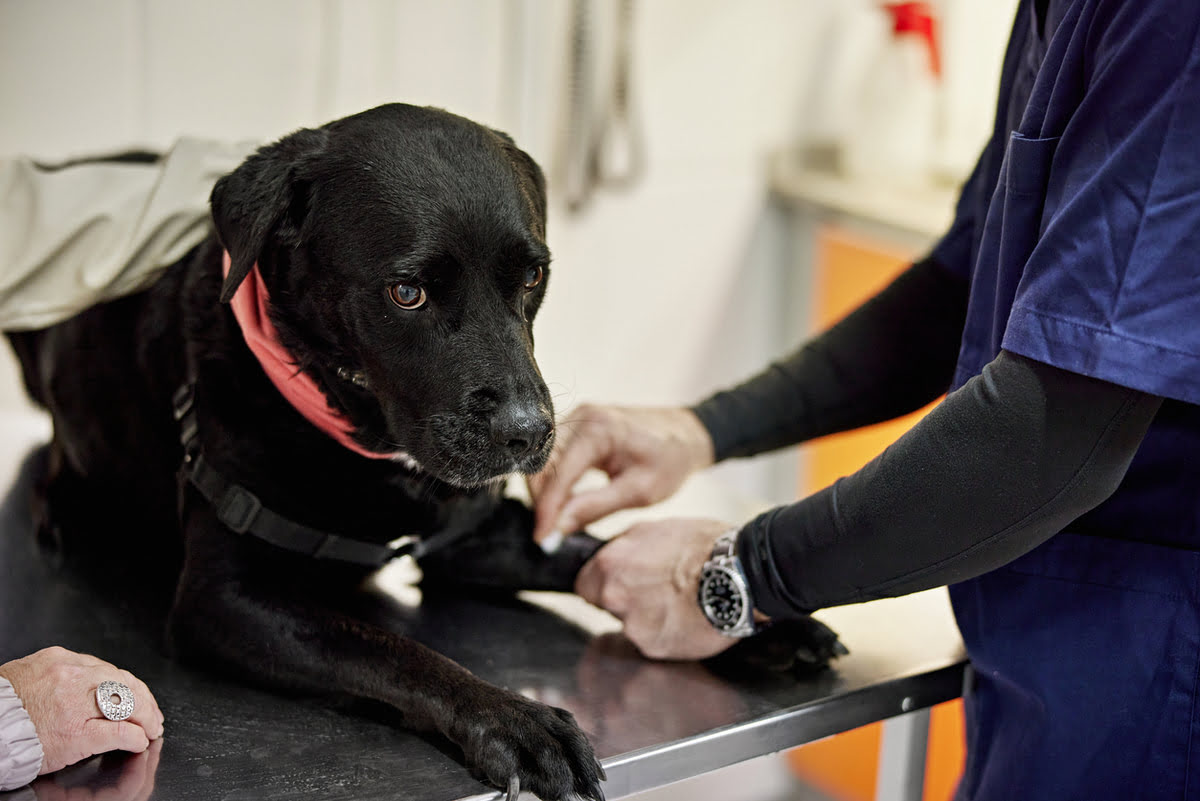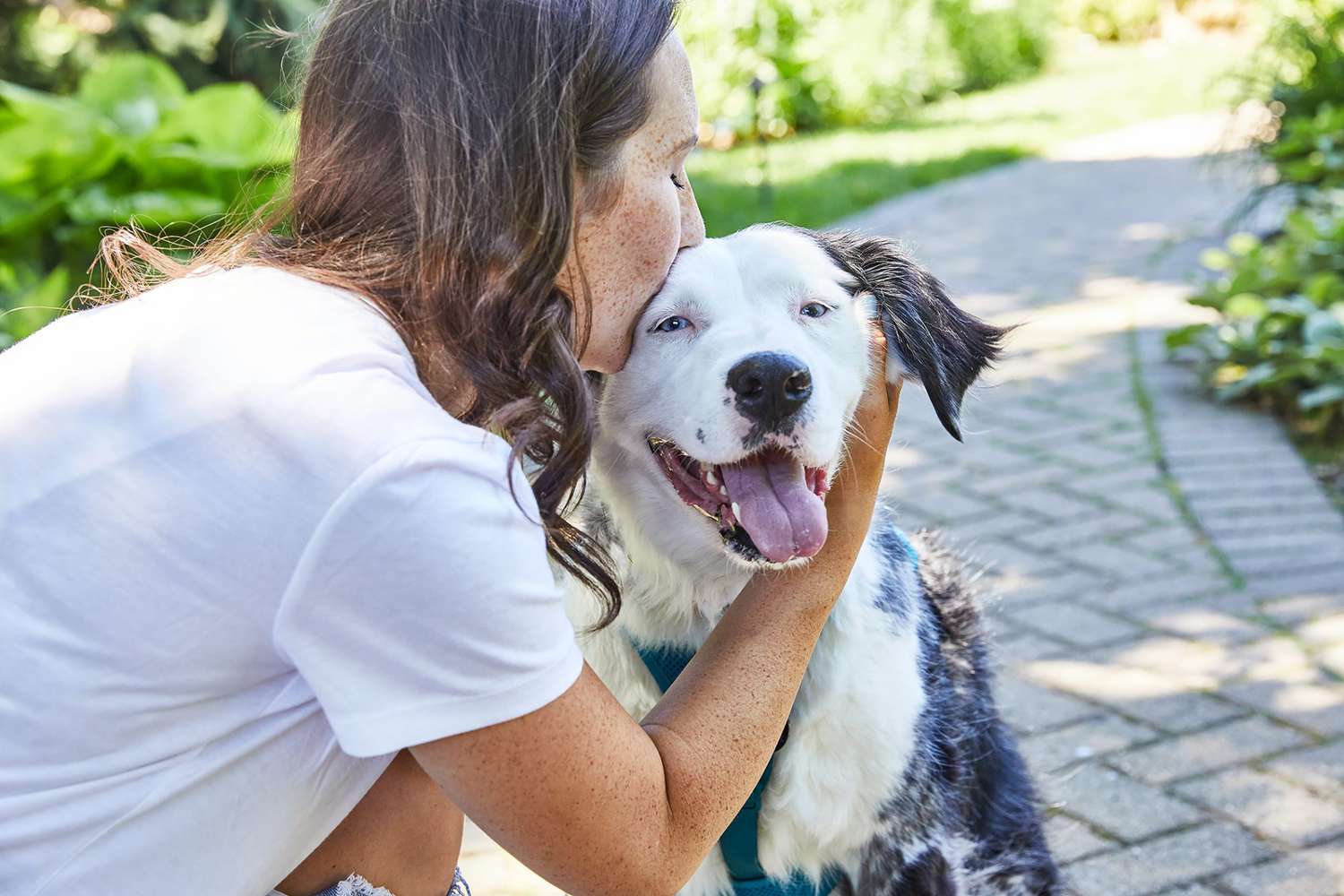Home>Health & Wellness>Common Health Issues>What To Do If You Can’t Afford Cancer Treatment For Your Dog


Common Health Issues
What To Do If You Can’t Afford Cancer Treatment For Your Dog
Published: February 4, 2024
Learn about common health issues in dogs and what to do if you can't afford cancer treatment for your pet. Get expert advice and support for managing your dog's health.
(Many of the links in this article redirect to a specific reviewed product. Your purchase of these products through affiliate links helps to generate commission for Pawsomeoldies.com, at no extra cost. Learn more)
Table of Contents
Introduction
Cancer is a formidable adversary, and when it affects our beloved canine companions, it can be a heart-wrenching experience. The emotional toll of a cancer diagnosis in a dog is often compounded by the financial burden of treatment. As a devoted pet parent, the thought of being unable to afford the necessary care for your furry friend can be overwhelming. However, it's essential to remember that you are not alone in facing this challenge.
When confronted with the daunting prospect of financing cancer treatment for your dog, it's crucial to approach the situation with a clear mind and a proactive attitude. While the financial aspect of cancer care for dogs can be daunting, there are various avenues to explore and resources available to help alleviate the burden. This article aims to provide guidance and support for pet parents navigating the complexities of affording cancer treatment for their dogs.
Amidst the uncertainty and anxiety, it's important to remember that there are options and solutions to consider. By understanding the costs involved, exploring financial assistance programs, and learning about fundraising opportunities, you can empower yourself to make informed decisions and take positive steps toward securing the best possible care for your furry companion. Let's delve into the intricacies of affording cancer treatment for dogs and discover the pathways to support and assistance that can make a meaningful difference in your dog's journey towards recovery.
Understanding the Cost of Cancer Treatment for Dogs
Cancer treatment for dogs encompasses a spectrum of medical interventions, including surgery, chemotherapy, radiation therapy, and medication. The cost of these treatments can vary significantly based on factors such as the type and stage of cancer, the chosen treatment modalities, and the duration of therapy. Understanding the financial implications of cancer treatment for dogs is essential for pet parents embarking on this challenging journey.
The expenses associated with cancer treatment for dogs can be substantial, often ranging from hundreds to thousands of dollars. Diagnostic procedures, such as biopsies and imaging tests, are typically the initial financial outlay. Subsequent costs may include surgery, chemotherapy sessions, and ongoing medication. Additionally, veterinary consultations, follow-up appointments, and supportive care further contribute to the overall expenditure.
It's important to recognize that the cost of cancer treatment for dogs is influenced by various factors, including the geographic location of the veterinary facility, the expertise of the medical team, and the specific requirements of the individual dog. Furthermore, the potential need for specialized care, such as palliative treatments or hospice care, should also be considered when assessing the financial implications of cancer treatment.
In addition to the direct medical expenses, pet parents should be mindful of the ancillary costs associated with cancer treatment for dogs. These may encompass travel expenses for veterinary visits, potential adjustments to daily routines to accommodate the dog's care needs, and the emotional toll of witnessing the pet's struggle with the illness.
Understanding the multifaceted nature of the costs involved in cancer treatment for dogs enables pet parents to approach the situation with clarity and foresight. By comprehending the financial landscape, individuals can make informed decisions and explore viable options to manage the expenses effectively. This understanding also underscores the importance of seeking financial assistance and exploring fundraising avenues to alleviate the burden of cancer treatment costs for dogs.
In the subsequent sections, we will delve into the various financial assistance options and fundraising strategies available to support pet parents in their endeavor to provide the best possible care for their dogs. By gaining insight into these aspects, pet parents can navigate the complexities of financing cancer treatment for their dogs with greater confidence and resilience.
Exploring Financial Assistance Options
When facing the daunting prospect of financing cancer treatment for a beloved canine companion, pet parents may find solace in the availability of financial assistance programs specifically designed to alleviate the burden of medical expenses. These programs, offered by various organizations and foundations, aim to support pet parents in ensuring that their dogs receive the necessary cancer care without succumbing to financial strain.
One of the primary avenues for financial assistance is through veterinary-specific foundations and charitable organizations. These entities are dedicated to providing support to pet parents facing the challenges of affording veterinary care, including cancer treatment for dogs. By leveraging the resources and assistance offered by these organizations, pet parents can access grants, subsidies, or low-cost treatment options, thereby mitigating the financial impact of cancer care for their dogs.
Additionally, some veterinary hospitals and clinics may offer financial aid or payment plans to assist pet parents in managing the costs of cancer treatment for their dogs. These arrangements can help alleviate the immediate financial burden by providing flexible payment options, thereby ensuring that the dog receives the required care without imposing undue financial strain on the pet parent.
Furthermore, pet insurance can play a pivotal role in offsetting the expenses associated with cancer treatment for dogs. While it is ideal for pet parents to have insurance coverage in place before a cancer diagnosis, some insurance providers may offer coverage for cancer treatment, subject to policy terms and conditions. Exploring the coverage options and potential reimbursement for cancer care expenses can provide significant relief to pet parents navigating the financial aspects of their dog's treatment.
In addition to these avenues, crowdfunding platforms can serve as a valuable resource for pet parents seeking financial assistance for their dog's cancer treatment. By sharing their dog's story and treatment needs on crowdfunding websites, pet parents can harness the power of community support and generosity to raise funds for the necessary medical care. The emotional resonance of a pet's journey combined with the goodwill of friends, family, and compassionate strangers can culminate in meaningful financial assistance for the dog's cancer treatment.
It is important for pet parents to proactively explore these financial assistance options and engage with relevant organizations, veterinary facilities, and insurance providers to ascertain the available support mechanisms. By leveraging these resources, pet parents can navigate the financial challenges of cancer treatment for their dogs with greater resilience and optimism, ensuring that their beloved companions receive the care they deserve.
In the subsequent sections, we will delve into the intricacies of fundraising for a dog's cancer treatment and discuss the process of making difficult decisions in the face of financial constraints. By gaining insight into these aspects, pet parents can equip themselves with the knowledge and strategies necessary to navigate the complexities of affording cancer treatment for their dogs.
Fundraising for Your Dog's Cancer Treatment
When confronted with the daunting financial burden of cancer treatment for a beloved dog, pet parents often turn to the power of community and compassion by initiating fundraising efforts. Fundraising for a dog's cancer treatment is a proactive and impactful way to rally support, garner financial assistance, and ensure that the canine companion receives the necessary care without imposing undue strain on the pet parent's finances.
Fundraising initiatives can take various forms, each with the potential to resonate with a diverse audience and evoke empathy and support. One of the most prevalent fundraising methods is leveraging online crowdfunding platforms, where pet parents can share their dog's story, treatment needs, and financial challenges. By harnessing the reach and connectivity of social media and online networks, pet parents can appeal to a broad audience, including friends, family, and compassionate individuals who are passionate about animal welfare.
In addition to online platforms, traditional fundraising events, such as bake sales, garage sales, or charity walks, can serve as impactful avenues for generating financial support. These events not only raise funds but also foster a sense of community involvement and solidarity, as individuals come together to contribute to a noble cause. Furthermore, partnering with local businesses, veterinary clinics, and animal welfare organizations can amplify the reach and impact of fundraising efforts, garnering support from a wider network of individuals and entities.
The success of fundraising for a dog's cancer treatment often hinges on the compelling narrative and emotional resonance of the pet's journey. By transparently sharing the dog's diagnosis, treatment plan, and the financial challenges faced, pet parents can evoke empathy and understanding, compelling individuals to contribute to the cause. Personalized updates, gratitude expressions, and the tangible impact of the funds raised further engage supporters and reinforce the collective effort to ensure the dog's well-being.
Fundraising for a dog's cancer treatment is not solely about generating financial assistance; it is a testament to the unwavering bond between humans and their canine companions. It embodies the spirit of empathy, generosity, and communal support, transcending financial contributions to symbolize the collective commitment to alleviating the suffering of a beloved pet. Through fundraising, pet parents can navigate the financial challenges of cancer treatment with resilience, knowing that they are not alone in their endeavor to provide the best possible care for their furry friend.
In the subsequent sections, we will delve into the process of making difficult decisions in the face of financial constraints, equipping pet parents with the knowledge and support necessary to navigate the complexities of affording cancer treatment for their dogs.
Making Difficult Decisions
Navigating the financial challenges of affording cancer treatment for a beloved dog often entails confronting a myriad of difficult decisions. The emotional and ethical dimensions of these decisions can weigh heavily on pet parents, compelling them to carefully consider the well-being of their canine companion alongside the practicalities of managing the associated expenses.
One of the foremost considerations in making difficult decisions pertains to assessing the potential outcomes and prognosis of the dog's cancer treatment. Understanding the anticipated benefits and potential challenges of the treatment, as well as the impact on the dog's quality of life, is crucial in making informed decisions. This involves candid discussions with the veterinary care team to gain clarity on the treatment options, expected outcomes, and the dog's comfort throughout the process.
Furthermore, pet parents may find themselves grappling with the ethical dilemma of balancing the financial costs of treatment with the dog's well-being. It is essential to approach this deliberation with empathy and pragmatism, considering the dog's resilience, pain management, and overall welfare. This introspective process may involve weighing the potential benefits of treatment against the dog's comfort and quality of life, ensuring that the decisions made are rooted in compassion and the best interests of the canine companion.
In some instances, pet parents may need to contemplate the feasibility of alternative care options, such as palliative care or pain management, in lieu of intensive cancer treatment. These decisions require open communication with the veterinary care team to explore viable alternatives that prioritize the dog's comfort and dignity while managing the financial constraints effectively.
Moreover, the support and guidance of the veterinary care team play a pivotal role in facilitating these difficult decisions. By fostering an environment of open dialogue, empathy, and shared decision-making, the veterinary professionals can provide invaluable insights and support to pet parents, empowering them to navigate the complexities of treatment decisions with clarity and compassion.
Ultimately, making difficult decisions in the face of financial constraints necessitates a delicate balance of pragmatism, empathy, and unwavering devotion to the well-being of the beloved canine companion. By approaching these decisions with thoughtfulness and seeking guidance from the veterinary care team, pet parents can navigate the complexities of affording cancer treatment for their dogs with resilience and compassion, ensuring that the decisions made are rooted in the unwavering commitment to the dog's welfare and quality of life.
Conclusion
The journey of affording cancer treatment for a beloved dog is a profound testament to the unwavering bond between pet parents and their canine companions. It encompasses a tapestry of emotions, challenges, and pivotal decisions, all underscored by the shared commitment to ensuring the dog's well-being. As we navigate the complexities of financing cancer treatment for dogs, it becomes evident that the path forward is illuminated by resilience, compassion, and the unwavering support of the community.
In the face of daunting financial burdens, pet parents are not alone in their endeavor to provide the best possible care for their furry friends. Understanding the multifaceted nature of the costs involved in cancer treatment for dogs empowers pet parents to approach the situation with clarity and foresight. By comprehending the financial landscape, individuals can make informed decisions and explore viable options to manage the expenses effectively.
Exploring financial assistance options and fundraising strategies serves as a beacon of hope, offering pathways to alleviate the burden of cancer treatment costs for dogs. The availability of financial assistance programs, veterinary-specific foundations, and charitable organizations underscores the collective commitment to supporting pet parents in ensuring that their dogs receive the necessary cancer care without succumbing to financial strain.
Fundraising for a dog's cancer treatment transcends financial contributions to symbolize the collective commitment to alleviating the suffering of a beloved pet. It embodies the spirit of empathy, generosity, and communal support, fostering a sense of unity and compassion as individuals come together to contribute to a noble cause.
Making difficult decisions in the face of financial constraints necessitates a delicate balance of pragmatism, empathy, and unwavering devotion to the well-being of the beloved canine companion. By approaching these decisions with thoughtfulness and seeking guidance from the veterinary care team, pet parents can navigate the complexities of affording cancer treatment for their dogs with resilience and compassion, ensuring that the decisions made are rooted in the unwavering commitment to the dog's welfare and quality of life.
In the tapestry of challenges and triumphs, the journey of affording cancer treatment for a dog is imbued with the unwavering spirit of love, compassion, and resilience. It is a testament to the profound bond between humans and their canine companions, transcending financial constraints to embody the collective commitment to ensuring that every dog receives the care, compassion, and support they deserve.














